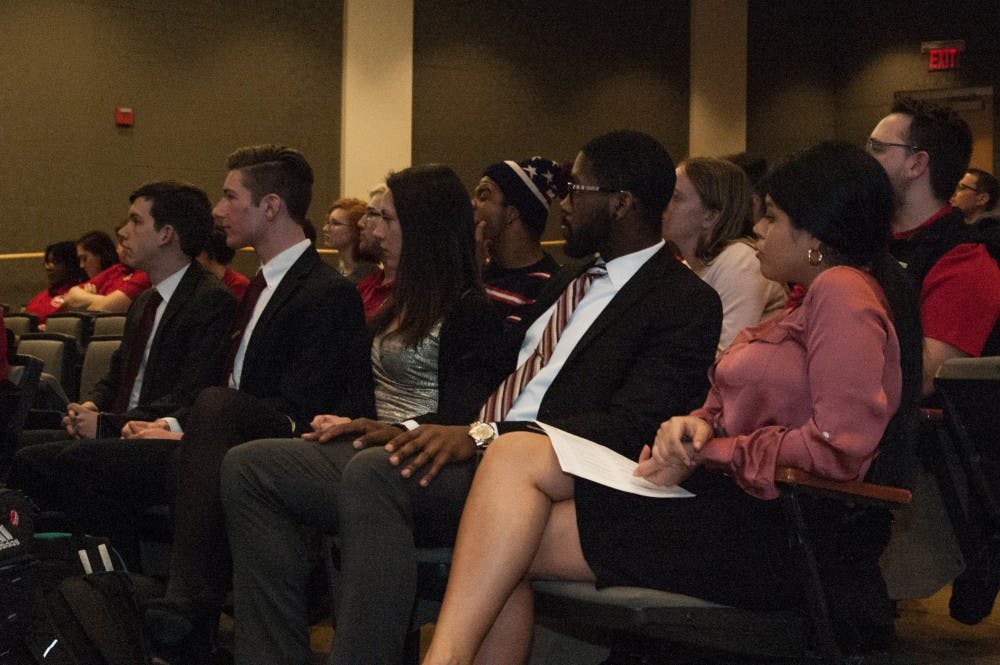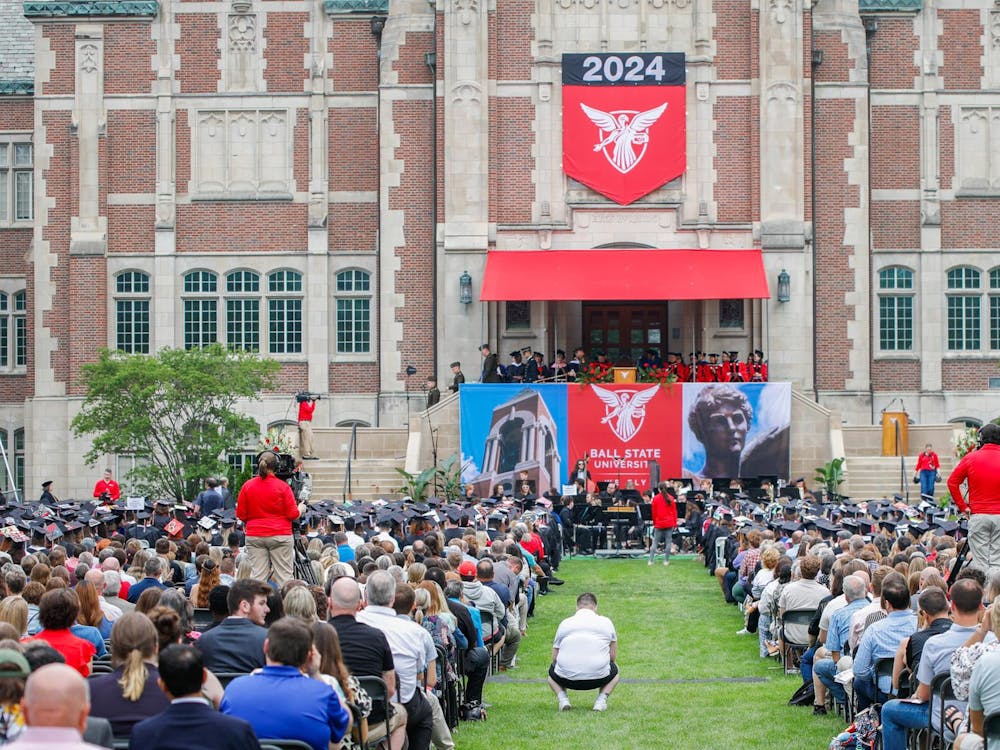Students asked their own questions to executive slate Amplify at the Town Hall Debate Wednesday.
Before and during, students submitted questions through email, Twitter or in person regarding the 2018 Student Government Association elections.
Amplify slate members, including Isaac Mitchell, president; Matt Hinkleman, vice president; Kyleigh Snavely, secretary; and Jalen Jones, treasurer, represent the first slate to run unopposed in eight years.
Here’s some key student questions from the Town Hall Debate:
Q: How would you go about better communication between SGA and the at-large student population to raise awareness? How would you go about changing student apathy toward SGA?
A: Mitchell said while apathy does not have a one-step solution, Amplify members can educate the student body about SGA and use student input in their platform points.
“We are visiting many organizations to try and have conversations about SGA,” Mitchell said. “Something that has been common with a lot these organizations that we have been visiting is that they even know what SGA is. So, we need to teach people what SGA is.”
Freshman pre-physician assistant major James Schwer, who asked the question, said students need to care more about the people who represent the student body.
“There’s not a lot of people that know about SGA or that they even exist,” Schwer said. “Students should look at SGA as fellow peers, as fellow students, not as senators or presidents or whatever else.”
Q: In what ways is this slate the best option when you guys have no competition?
A: “Even if there was another slate, even if there were two other slates, we would still be the best choice for the student body,” Hinkleman said. “We have a singular vision in mind to amplify the voice of students.”
Hinkleman said because of the knowledge, experience and drive of Amplify members, they are the most qualified individuals to run for the executive slate positions.
Q: How will you make sure that people know about the changes you bring to campus?
A: Hinkleman said it is important to implement change that is noticeable on campus.
“A very important aspect of this is implementing change that is clearly visible to the students,” Hinkleman said. “If there is a change that we are able to implement on campus that every student will have the opportunity to see, they are going to see that change and wonder how that happened and we’re going to be the ones attributed with that change.”
Q: How will you reach students that are not in organizations or don’t follow you on social media?
A: Snavely said one way to combat this would be through a second campaign in the fall to make incoming freshman aware of SGA and its executive slate.
Additionally, Hinkleman said SGA members can reach out to the student body in-person and in the classroom.
“A great way we advocate for SGA is by being more proactive in-person,” Hinkleman said. “In all of our classes, we spend a little time talking about SGA and what SGA can do for the students. A lot of times, students just don’t know about SGA. But if we explain to them what it is, what it can do for them, they will become much more interested.”
Q: Why should we elect you as our new SGA slate?
A: “We are doing something different this year. We are not going around just trying to campaign, we are going around to try and collect ideas of student,” Mitchell said. “If there is a student who doesn’t see an idea that really excites them or that they are really passionate about on our platform, then all they have to do to make that a priority is talk to the slate.”
Mitchell said Amplify members currently have over 30 suggestions and ideas from student organizations.
“We are willing to actually look beyond just these 16 platform points,” Mitchell said. “Being honest, we are not going to be able to accomplish all 30 of the new suggestions we have got. However, I think when students see that they suggested something to a slate and then they started seeing progress toward change about that issue, then they will realize the true influence and importance of SGA on campus.”
Contact Liz Rieth with comments at ejrieth@bsu.edu or on Twitter at @liz_rieth.





